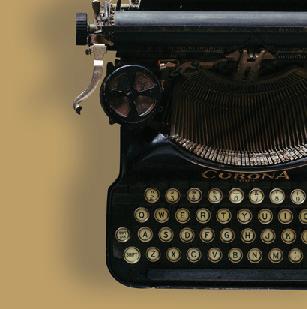SCRIBBLE
A Drink for the Revolution Creative Writing by Lily Harding The GDST Creative Writing prize is an opportunity for GDST students to produce a piece of creative writing on a chosen theme, which for this year is ‘New Rules for the future world’.
5
,300 people. That was the figure I gave to my editors. It was only an estimate, a lie really, nobody present on that day would’ve bothered to count.
I still remember it now, down to the second; it was summer, verano, the height of a sweltering August. The month that brought tourists and trash and dead crops. The natives were tired, you could see it in their faces, and afraid - they had a right to be. I’d met my landlady during the installation of heavy duty locks on the apartment doors. I was a rookie journalist looking to cut my teeth on some big revolutionary story; have my voice heard across the Land of the Free. So I arrived in Cuba, 1955. By that point public faith in the Batista regime had already faltered. The idea of revolution was rife in the streets, humming like electricity in the air before a thunderstorm. Students were demonstrating, making connections with unions and workers councils, passing around Marx and Engels and Bakunin. Law enforcement had started to come down hard on them, and that was what instigated the worst of it; the kids I talked to in bars and clubs had told me horror stories. I spoke to a girl whose cousins were in hospital after being thrown out of their third storey window. She said she saw the stain where they hit the ground everyday on her walk to work.
4
As for me, I was excited. The type of excitement a child feels when their classmate gets in trouble. I felt disconnected from the Cuban youth struggle; I was from the States, I didn’t realise that the ads for Chevrolet and Lucky Strike were unnatural, pasted on favela walls with facetious eyes and smiles white as the block font that implored you to pay attention and pick me, pick me, pick me! I’d never seen the police break down my door and raid my rooms, take my siblings and children. I was ever the American; I was going to use the Cubans as a springboard into fame. Until that day. I remember it was humid, Havana sun baking pale skin pink, heat radiating off the alleyway cobblestones. It was the kind of day where girls would bask topless in the sand, pimps and mob bosses would sit idly smoking cigars in cafes, and foreigners would harass shopkeepers whilst sweating through their cheap t-shirts. I’d been tipped off by one of the students at Havana University that there was going to be a rally at midday, and I was ready for a show. I sat next to a fountain in the centre of a square, dipping my toes in the water to give myself some small reprieve from the sun, when a group of five made their way up to me. I barely noticed them until the tallest of them, a teenager who didn’t look much older than 18, splashed past me and clambered up the marble statue in the middle of the fountain. I











